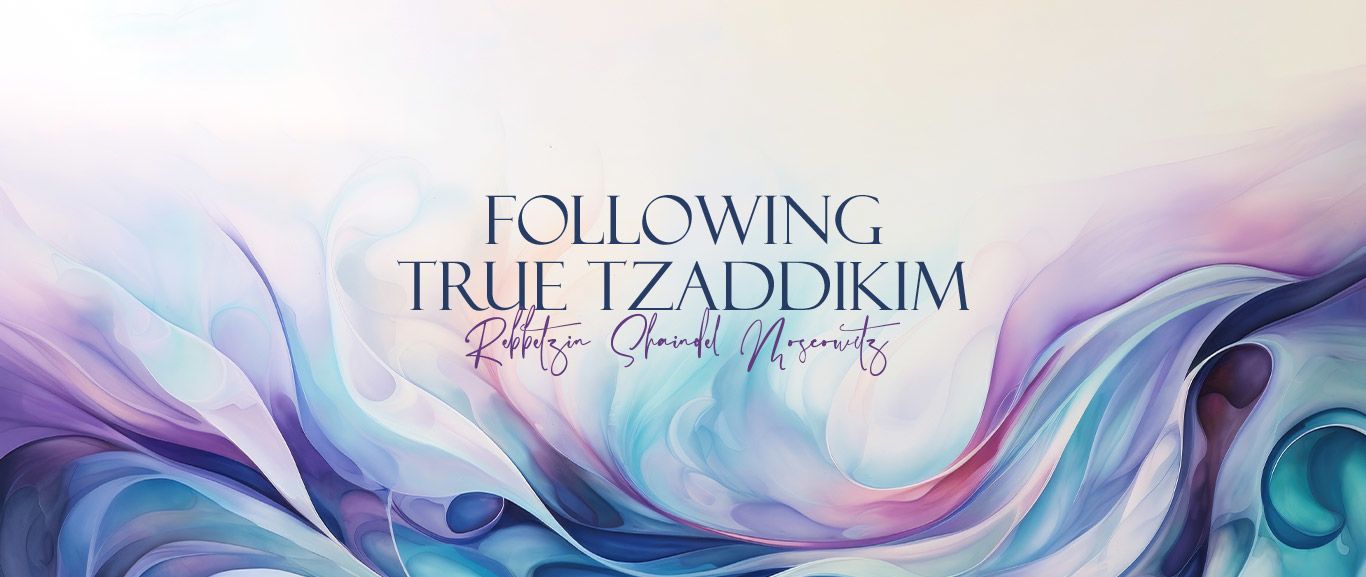
Following the True Tzaddik
Purim teaches us that if we follow the true tzaddikim with simple emuna - without being "too clever" and thinking we know better - we’ll surely do the right thing…

Purim is a celebration of the miracle whereby Mordechai Hatzaddik together with Queen Esther saved the Jews from annihilation by king Achashverosh and his viceroy Haman.
The story of Purim took place in the years between the destruction of the first Beit Hamikdash and the building of the second one. The Babylonians, the reigning world power, destroyed the first Holy Temple and took most of the Jews who were still alive as captives down to Bavel (Babylonia). Amongst the captives was Mordechai who had been part of the Sanhedrin. In Bavel, he was appointed to be one of the chavrei Beit Din (members of the Beit Din religious court) who led the Jews there.
Soon after the Jews were driven to Bavel, the Babylonians themselves were overthrown by the Persians who became the new world power. The seat of world government moved to Shushan in Persia, and so Mordechai, as one of the ruling elite, moved there.
In Shushan, King Achashverosh made a banquet lasting one hundred and eighty days to celebrate his ascent to power. He was not of royal descent but had married Vashti, the granddaughter of Nebuchadnezzar (who had destroyed the Beit Hamikdash). He invited representatives and officials from all the countries under Persian rule to this feast where he displayed his vast wealth, which included the stolen vessels of the Beit Hamikdash.
Queen Vashti hosted a separate banquet for the women at the same time as the king. But when Achashverosh, in a drunken fit, commanded her to appear before him she refused to obey the summons. In his drunken rage at her disobedience, he had her killed. When Achashverosh became sober and realized what he had done, he was distraught. In order to distract him, his servants advised him to look for a new queen.
The search went on for four years. Achashverosh had a large portrait of Vashti and he compared each girl that was presented to him to this portrait. No one was able to measure up to her beauty until he saw Esther, the niece of Mordechai. He was so captivated by her that he immediately crowned her as his new queen.
We then move to the next stage of the drama where Haman, a rabid antisemite rose to power as the viceroy (second-in-command) of the king. Once he was in power, he convinced the king to issue a decree to annihilate all the Jews under Persian rule.
And as we know (because after all we do read the megillah), Queen Esther followed the advice of her uncle Mordechai and managed to save her people. Haman was hung from the gallows and Mordechai became viceroy in his place. All the Jews rejoiced and celebrated their deliverance from a certain death.
But if you study the megillah as I like to do, you will find that Mordechai acted very strangely – he did things that actually seemed very dangerous at the time!
The first thing we see is that when Achashverosh made his one hundred and eighty day banquet he also made a separate banquet for the Jews. In order to enable them to eat there, he served food that was strictly kosher. Even so, Mordechai absolutely forbade the Jews to partake of that feast. There were Jews who maintained that since every single country under Achashverosh’s rule had sent ministers and representatives to the banquet, it would certainly seem like an act of rebellion against the king if only the Jews refused to participate. On the face of it, not attending the banquet would “send a message” to Achashverosh that the Jews did not accept him as king, and this seemed a dangerous course of action with long-term repercussions.
Another odd thing is that when Esther became queen her uncle Mordechai told her not to divulge who she was or from which nation she was descended. That too seems the opposite of what one would normally expect. Usually people in power want favors for their family or kinsmen, so they make sure that everyone knows who they are.
And what about Bigson and Teresh who were angry with Achashverosh for demoting them from their positions as the supervisors of the palace gates to mere butlers, and therefore plotted to poison him? Mordechai overheard them discussing their plan and told Esther about it who disclosed it to the king. The king was saved and Bigson and Teresh were put to death. What difference would it have made to Mordechai if Achashverosh had been killed? He was a tyrant who only caused trouble for the Jews.
Later on we find the king commanding Haman to honor Mordechai by dressing him in the king’s robes and leading him through the streets of Shushan riding on the king’s own horse. However, when Haman had dressed Mordechai in the royal robes and told him to mount the horse, Mordechai, who had been fasting for three days and was weak, was unable to do so by himself. He told Haman to bend over so that he could use his back as a step to get up. Haman, having no choice in the matter, bent over. As Mordechai mounted, he gave Haman a resounding kick. Now that would seem to be an extremely dangerous thing to do when you’re dealing with the king’s second-in-command!
But all this pales into insignificance when we see that Mordechai openly defied Haman and refused to bow down to him.
The king had approved a law that when Haman passed by, all the people had to bow down to Haman. The law actually exempted ministers of government from bowing down to Haman because it lowered their dignity. Mordechai, who had been promoted to the status of a minister, could easily have used that as an excuse without antagonizing Haman. Or else Mordechai could simply have stayed at home, out of sight, and no-one would have been any the wiser.
But Mordechai intentionally chose to sit at the public palace gates where everybody, including Haman, could clearly see his deliberate defiance. He also let it be known publicly that he was not willing to bow down purely and simply because he was a Jew. Once again, why was it necessary to antagonize such an important person who was known as a rabid antisemite?
And we know that this succeeded in enraging Haman to such an extent that he went to the king (no lover of Jews either) determined to get a decree passed to exterminate Mordechai and his people. Haman succeeded in overcoming Achashverosh’s initial unwillingness to exterminate an entire nation and the decree was issued.
We know from the megillah that the Jews really were in extreme danger at the time. Once the decree had been pronounced as law and sent out to every city and province in all the countries the world over, (Persia ruled over the whole world at the time), the gentiles began taunting the Jews with descriptions of how they would kill them and take all their possessions. And there really was nowhere to run to because the decree was a world-wide one.
On the face of it, it looked as if Mordechai’s actions had been the catalyst for this terrible misfortune because he had deliberately chosen to antagonize Haman. We know from experience throughout the centuries that the best policy for us Jews is not to antagonize those in power.
And yet when Mordechai told the people that all these troubles had come upon them because they had sinned and that they needed to do teshuvah, everyone accepted his interpretation of the events as the correct one; because Mordechai was the tzaddik hador (righteous spiritual leader of the generation) it did not occur to anyone to blame him for the terrible danger they found themselves in. Instead we find that every single Jew, without exemption, listened to Mordechai, took to heart what he said and did what he asked – fasting and doing teshuvah.
And as we know (with hindsight we’re all clever) Mordechai’s actions were vindicated and he and Esther, with Hashem’s help, saved the Jews.
What does this show us? What lesson can we learn from this? We can learn that if we follow the true tzaddikim with emunah p’shutah – simple emuna – without being “too clever” and thinking we know better, we will surely do the right thing.
Let me explain what I mean by this:
The Chazon Ish writes in a letter that a tzaddik amiti (a true tzaddik whose life revolves solely round the Torah) has developed within himself the ability to see and understand things that are not apparent to ordinary people, and which the tzaddik himself is unable to explain.
When a person lives in the holy boundaries of Torah, his thought processes have been honed and refined by the Torah alone. He has not absorbed any other method of evaluation and analysis that will dilute his ability to understand the perfection and flawless clarity of the Torah.
For that reason we have seen throughout the generations that the tzaddikei hador have issued decisions which to us, with our “faulty, i.e. worldly understanding”, do not seem to be correct or relevant to the situation. And yet, in the long term they have always been proven to be correct.
When we respect and listen to our leaders whose daat Torah is totally and completely the product of minds cleansed and purified by Torah study we can be positive that we are doing the right thing and following Hashem’s wishes. The advice and guidance we are given by our spiritual leaders is based solely on Torah criteria and principles; and because they are true servants of Hashem they are, in addition, given siyata dishmaya (heavenly guidance) to guide us correctly.
It is in their zechut (merit) – and our zechut because we follow their rulings – that the Jewish People have survived intact as a pure and holy nation throughout the centuries.
All this is in contrast to those who do not believe in the truth of the Torah and whose opinions are formed by the prevailing influences and swayed by the wishes of the people.
Time and again we have seen that those who seek compromises and tamper with halachah fade away into oblivion. It’s like a tree that if you tear out its roots, the tree will wither and die. Throughout the centuries we have seen that those who weakened the authority of our manhigim and Rabbanim – who are our roots and anchor us – and changed the Torah to suit their needs are long gone and forgotten, assimilated amongst the nations, whilst we who follow our manhigim faithfully have survived and will continue to go forward as Am Yisroel.
Like Mordechai and Esther, chazak v’ematz, be strong, and against all odds you too will triumph!!



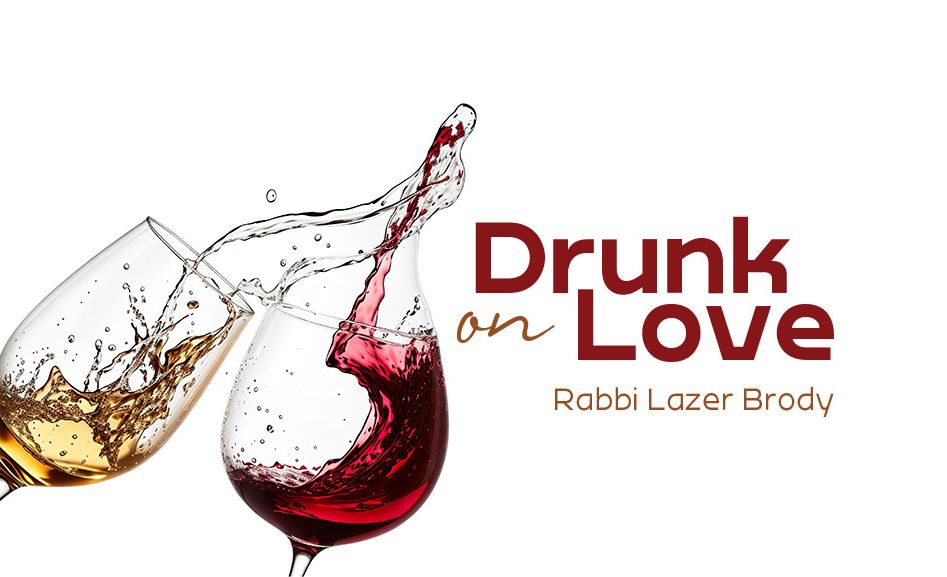


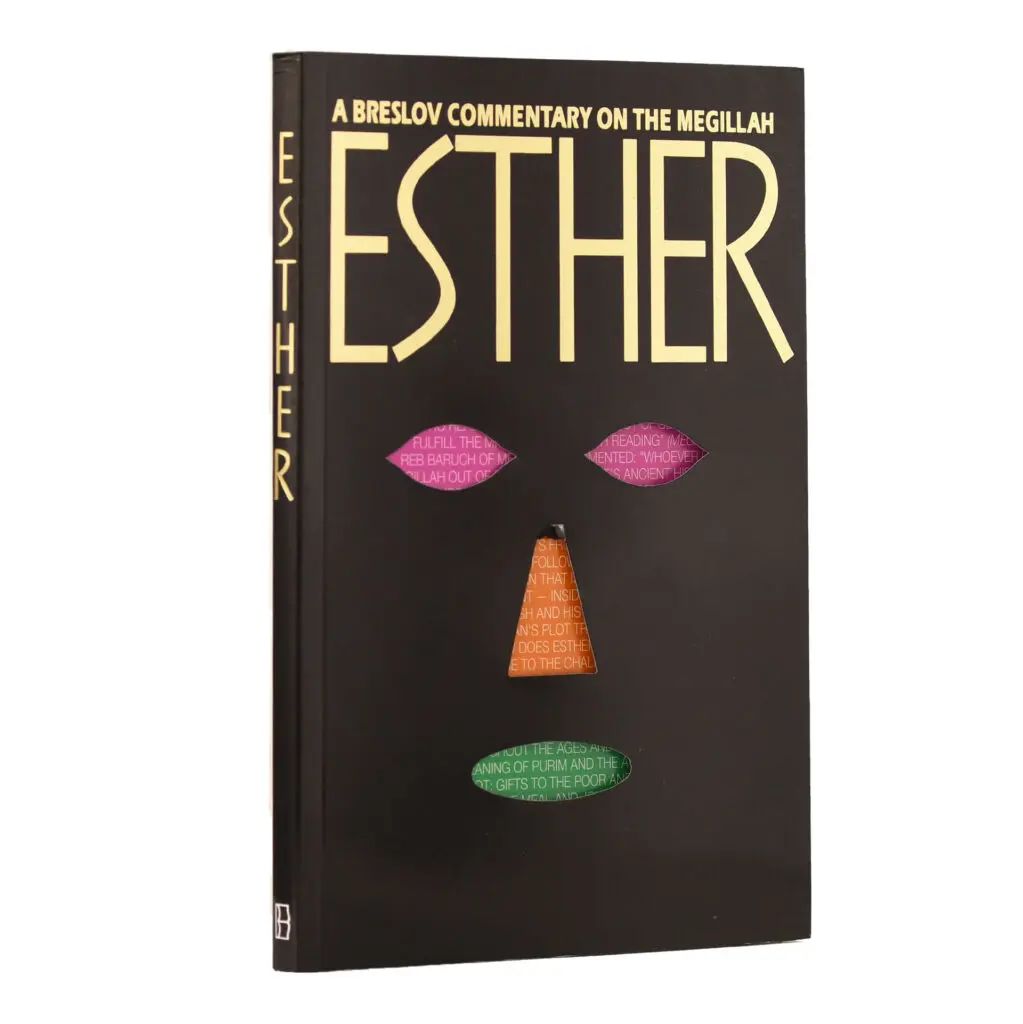
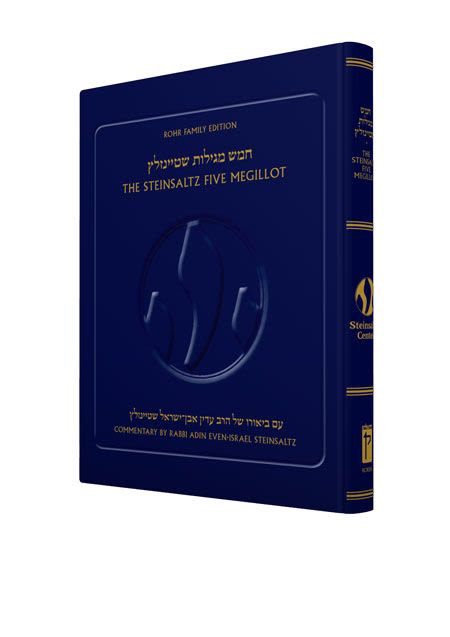
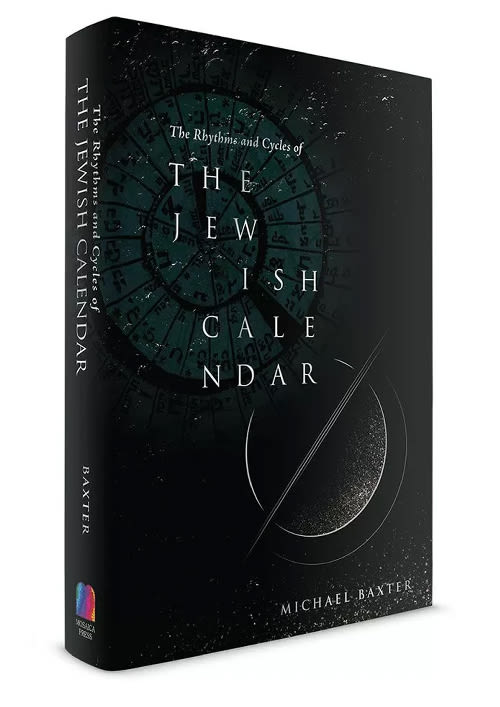
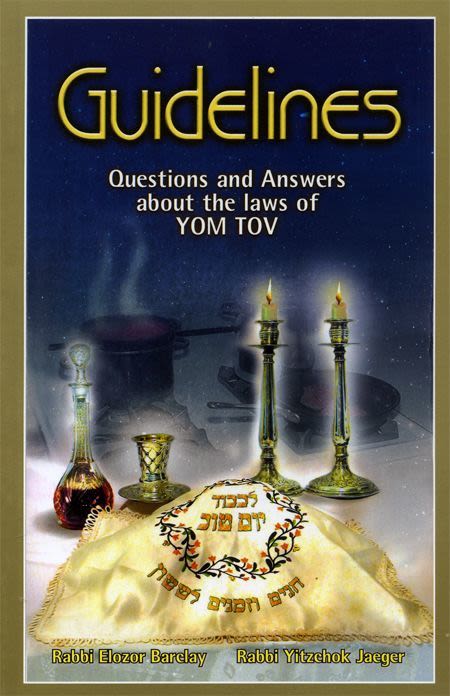

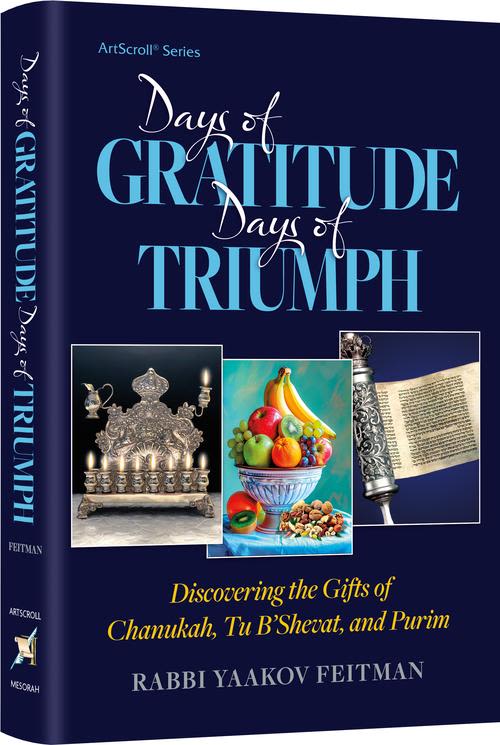
Tell us what you think!
Thank you for your comment!
It will be published after approval by the Editor.